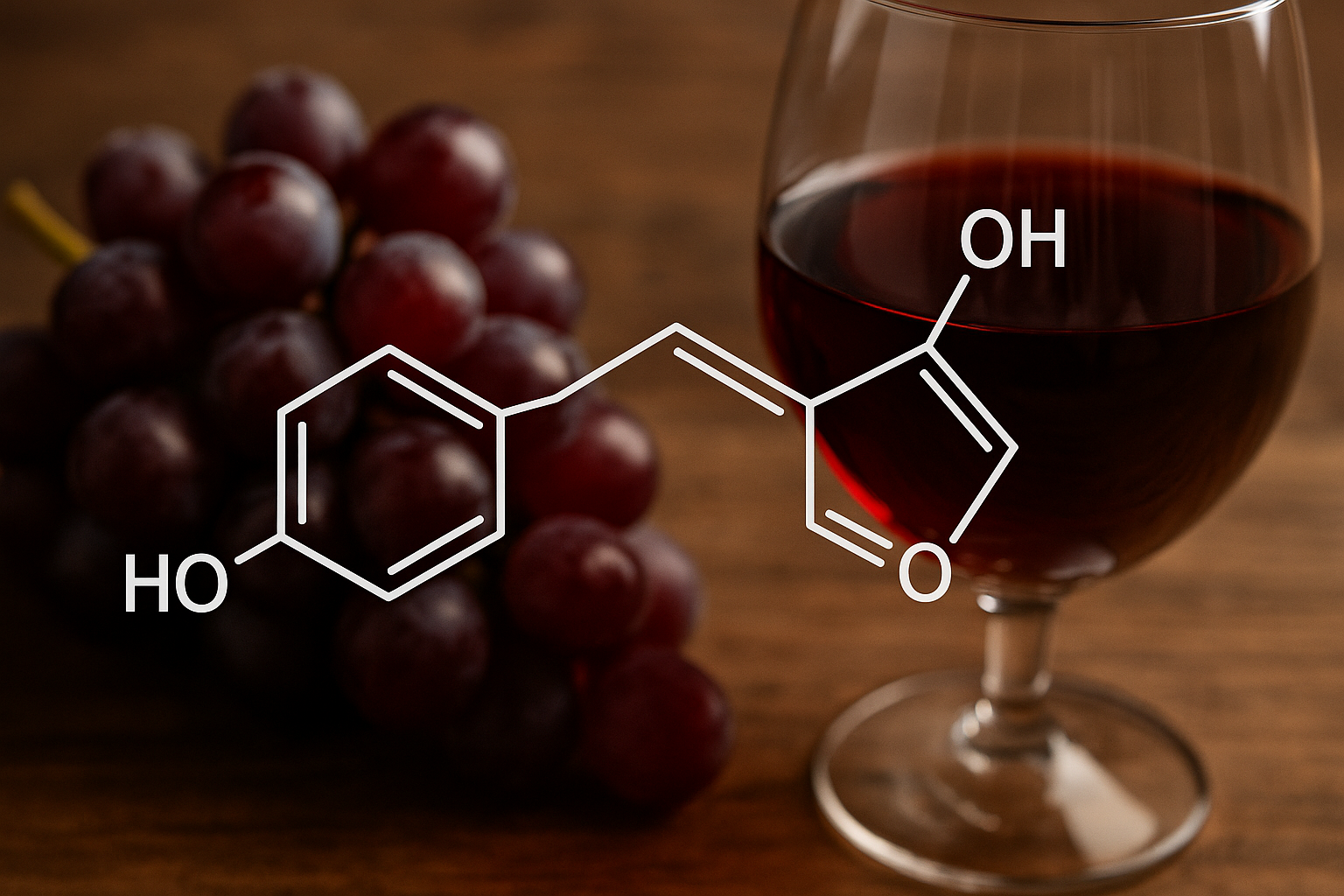What Is Resveratrol and Why It Matters
Resveratrol is a plant compound found in red wine, grapes, berries, and peanuts that has captured attention as a potential Fountain of Youth supplement. This natural antioxidant helps plants fight off threats like bacteria and fungi. Your body can use this same protective power for health benefits.
Scientists have studied resveratrol for over 20 years. Research shows it may help with heart health, brain function, and aging. However, getting enough from food alone is difficult. A glass of red wine contains only small amounts – you’d need hundreds of glasses to match supplement doses used in studies.
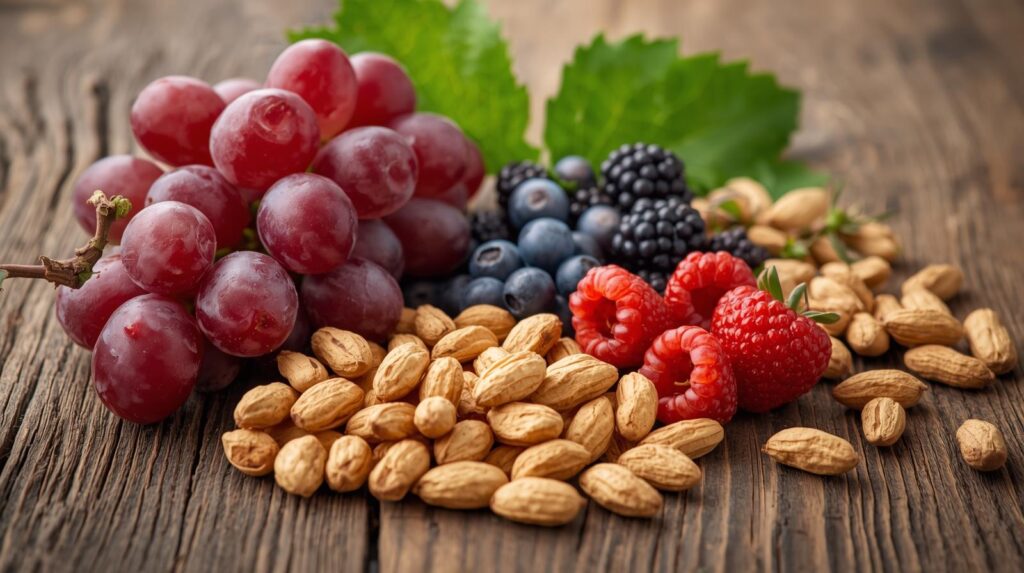
The key is understanding what works and what doesn’t. Not all resveratrol claims are backed by solid science.
Proven Health Benefits of Resveratrol
Heart Health Support
Studies show resveratrol may improve blood flow, reduce blood pressure, and prevent blood clots. It works by protecting the lining of your blood vessels from damage.
Research in humans found that people taking resveratrol supplements had better circulation and lower inflammation markers. These changes could reduce your risk of heart disease over time.
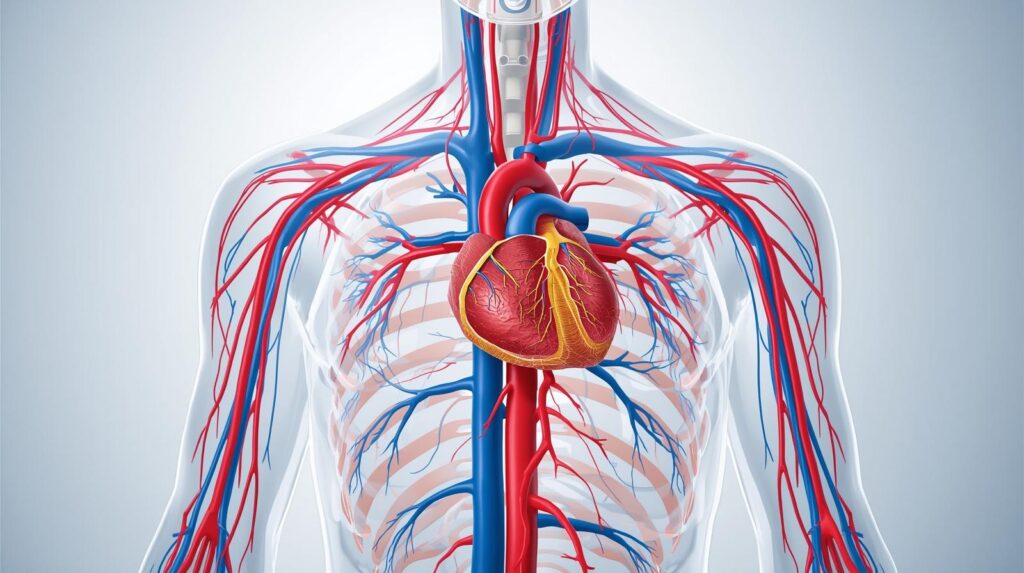
Brain Protection and Memory
Resveratrol provides protective benefits for your brain by reducing inflammation in blood vessels and preventing injury. This may help preserve memory and thinking skills as you age.
Small studies suggest resveratrol might slow cognitive decline. However, more long-term research is needed to confirm these brain benefits in healthy adults.
Blood Sugar Control
Multiple studies show resveratrol has anti-diabetic properties and can help modulate glucose metabolism. It may improve how your cells respond to insulin.
People with diabetes who took resveratrol supplements showed better blood sugar control in several clinical trials. This effect was most noticeable when combined with a healthy diet.
What Science Says About Anti-Aging Claims
Laboratory studies reveal resveratrol has antioxidant and anti-inflammatory effects that support cellular health. These properties could theoretically slow aging processes.
Animal studies show impressive longevity benefits. However, human anti-aging effects remain largely unproven. Most clinical trials focus on specific health conditions rather than overall aging.
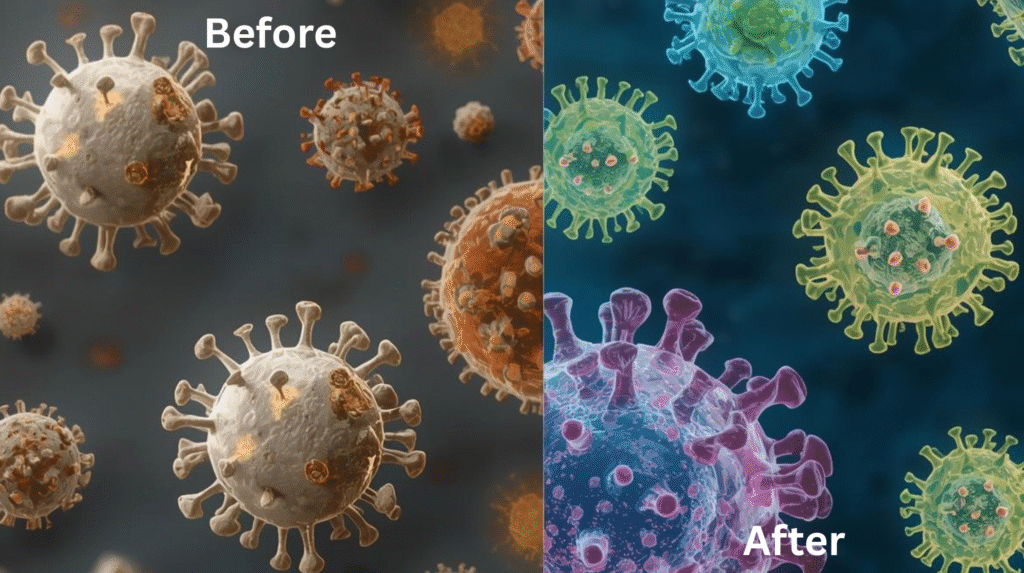
The reality: Resveratrol may support healthy aging when combined with good lifestyle habits, but it’s not a “fountain of youth.”
Safe Dosage and Potential Side Effects
Clinical trials show resveratrol is well-tolerated at daily doses up to 1 gram, with excellent safety profiles even when taken for a full year.
At doses of 2.5 grams or higher, mild side effects may include stomach upset, nausea, and diarrhea. These effects are usually temporary and resolve quickly.
Safe approach: Start with 250-500mg daily with meals. Higher doses should only be used under medical supervision.
Best Food Sources vs Supplements
Natural sources include:
- Red grapes and wine (highest amounts)
- Dark berries (blueberries, cranberries)
- Peanuts and pistachios
- Dark chocolate
Food provides many beneficial compounds that work together. However, supplement forms allow for higher, more consistent doses needed for therapeutic effects.
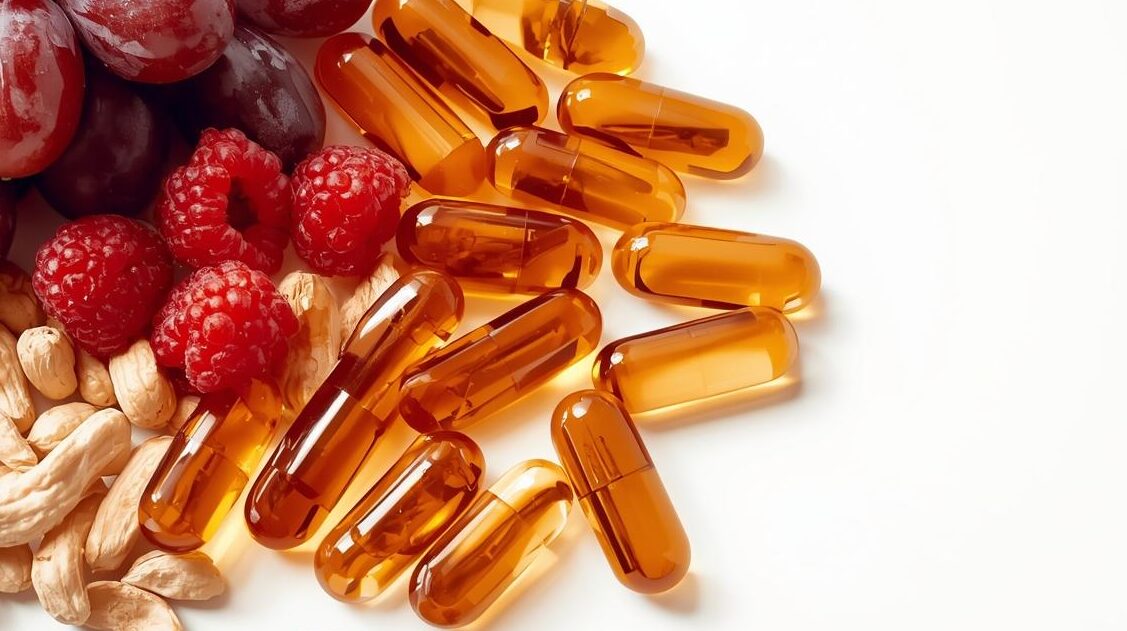
Choose supplements that specify “trans-resveratrol” – the most active form. Look for third-party testing for purity and potency.
The Bottom Line: Is Resveratrol Really a Fountain of Youth?
After analyzing scientific literature, researchers conclude that resveratrol is well-tolerated and favorably affects cardiovascular, neurological, and diabetic disorders.
While resveratrol shows real promise for specific health benefits, especially heart and brain health, calling it a true Fountain of Youth is an overstatement. It works best as part of an overall healthy lifestyle – not as a standalone solution.
Focus on proven basics first: regular exercise, stress management, quality sleep, and a nutrient-rich diet. Resveratrol can be a helpful addition to your healthy lifestyle habits, but it’s not magic.
Frequently Asked Questions about the “Fountain of Youth” and Health Trends
Q1: What are the benefits of so-called “fountain of youth” health trends?
These trends often promise anti-aging benefits such as improved skin, higher energy levels, and better longevity. While some ingredients support wellness, many claims are exaggerated. The real benefit comes from balanced nutrition, regular movement, and sustainable lifestyle habits.
Q2: How can you tell if a new health trend is truly effective?
Start by checking scientific research, consulting a healthcare professional, and monitoring long-term results rather than quick fixes. Avoid hype-driven marketing and focus on whether the habit or supplement is supported by peer-reviewed studies.
Q3: Are anti-aging supplements and “fountain of youth” products safe to use?
Safety depends on ingredients and dosage. While some supplements contain antioxidants or vitamins that are generally safe, others may interact with medications or cause side effects. Always consult a healthcare provider before adding them to your routine.
Q4: How much do “fountain of youth” treatments or supplements usually cost?
Costs range widely from under $50 for basic supplements to thousands for premium treatments like stem cell therapy or IV drips. Higher price doesn’t always equal better results, so evaluating long-term value is key.
Q5: Are lifestyle changes better than buying anti-aging products?
Yes, healthy lifestyle changes such as regular exercise, stress management, hydration, and a nutrient-rich diet consistently outperform expensive quick-fix products. Products may offer short-term results, but habits build lasting vitality and resilience.

